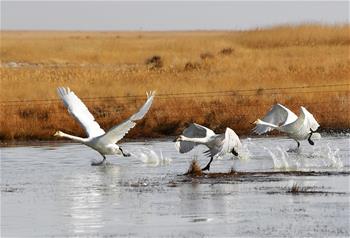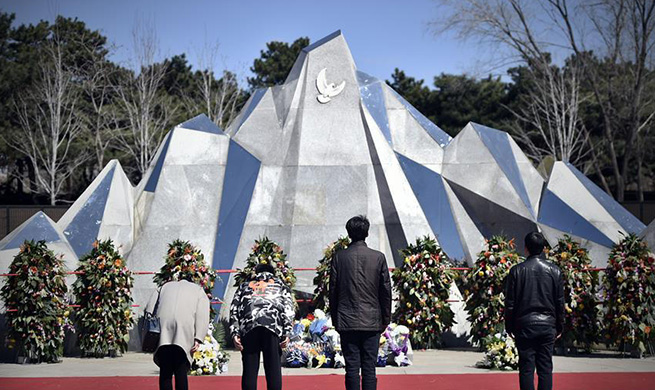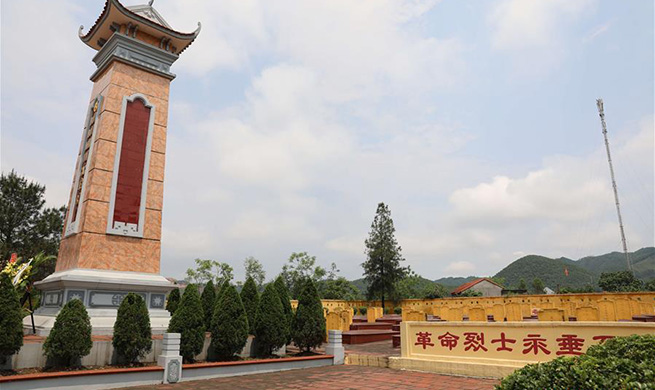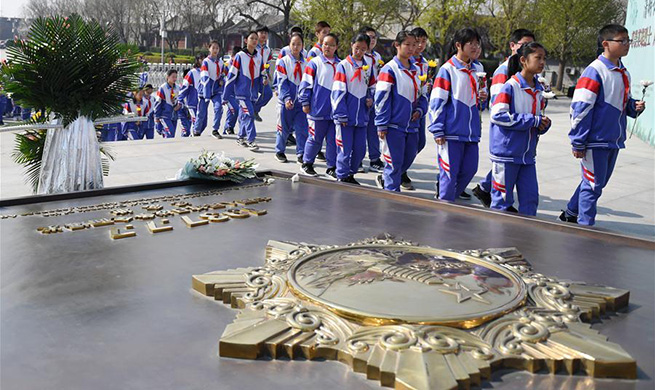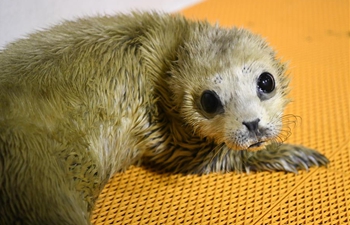TOKYO, April 5 (Xinhua) -- The Japan Aerospace Exploration Agency (JAXA) said on Friday that it has successfully shot an explosive projectile from its Hayabusa2 spacecraft which landed on and blasted the surface of asteroid Ryugu.
JAXA said it was the world's first such experiment, after confirming in images sent from Hayabusa2 that blasted debris had risen from the asteroid's surface.
Hayabusa2 dropped a "small carry-on impactor" which was essentially a metal cannon ball, onto the asteroid on Friday morning, the organization said.
"The metal bullet hit the surface of the Ryugu asteroid and there was an outburst of materials," said Yuichi Tsuda, associate professor at JAXA.
After dropping the impactor, the spacecraft moved quickly to the other side of the asteroid to avoid flying shards from the blast.
The crater mission was the riskiest for Hayabusa2, as it had to immediately get away so it would not get hit by flying shards.
The aim of the crater on Ryugu was to throw up "fresh" material from under the asteroid's surface that could shed light on the early stages of the solar system.
The asteroid was thought to contain relatively large amounts of organic matter and water from some 4.6 billion years ago, when the solar system formed.
In February, Hayabusa2 landed on Ryugu and collected samples from the asteroid's surface.
The Hayabusa2 mission was launched in December 2014 and the space probe is scheduled to return to Earth in 2020.
